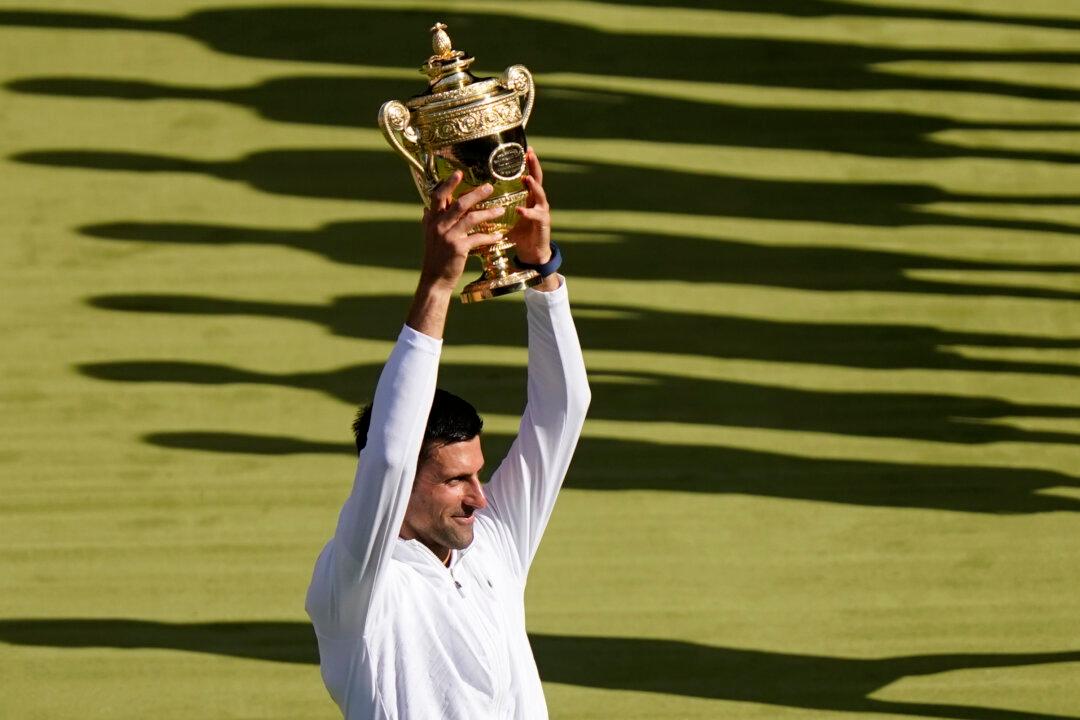WIMBLEDON, England—Novak Djokovic waited. He waited for Nick Kyrgios to lose focus and lose his way. Waited to find the proper read on his foe’s big serves. Waited until his own level rose to the occasion.
Djokovic is not bothered by a deficit—in a game, a set, a match. He does not mind problem-solving. And at Wimbledon, for quite some time now, he does not get defeated.





